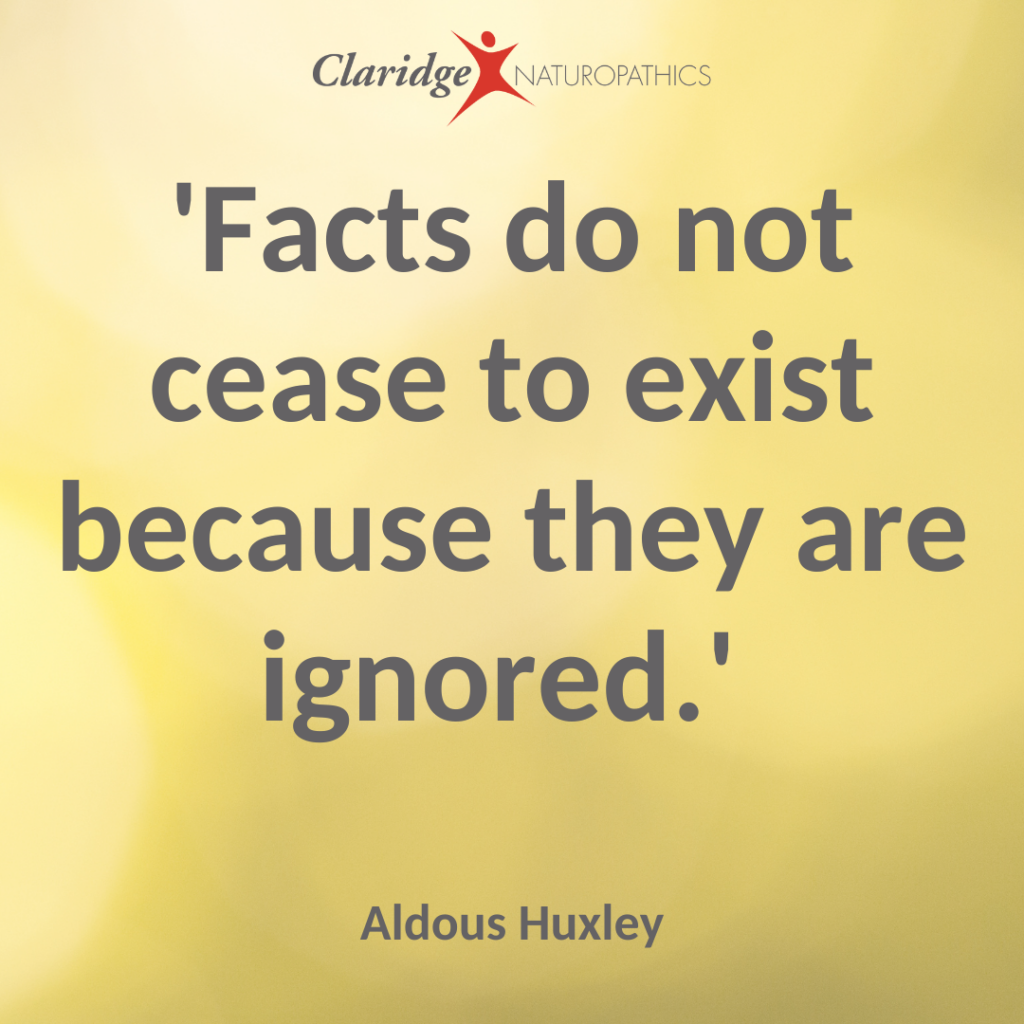Robert Claridge N.D.
Specialist Naturopath, Holistic Nutritionist, Herbalist, Homoeopath, R-System Specialist
“Facts do not cease to exist because they are ignored.” (Aldous Huxley)
Recently whilst reading the Weekend Australian, I noticed an article titled ‘Outdated heart advice risks lives (1)’. It outlined the call from leading Cardiologists and health institutes to make the Coronary Artery Calcium Score (CAC score) an important inclusion in the heart screening protocol. After reading about this test from leading Sydney cardiologist Dr. Ross Walker in the late 1990s, I have been advocating for my patients to complete this test. I have always argued that it is a much more reliable marker of heart disease than cholesterol. However, up until now I have been generally ridiculed by the medicos who I have directed my patients to.

The CAC score is a test that uses a specialised type of computed tomography (CT) scan to detect the amount of calcium build-up in the coronary arteries. The coronary arteries are the blood vessels that supply oxygen-rich blood to the heart muscle.
Calcium build-up in the coronary arteries is a sign of atherosclerosis, which is a condition in which plaque builds up on the inner walls of the arteries. This can eventually lead to narrowing of the arteries and decrease blood flow to the heart muscle, which can cause chest pain (angina), heart attack, and other serious heart problems.
The CAC score is calculated based on the amount of calcium detected in the coronary arteries during the CT scan. A higher CAC score indicates a greater amount of calcium build-up in the arteries, which is associated with a higher risk of heart disease.
The CAC score is a useful tool for assessing a person’s risk of heart disease and can help guide treatment decisions.
Cholesterol, on the other hand, is a controversial marker for heart disease. When you consider that it, in fact, plays an important role in your health it is confusing as to why it is generally seen as such a villain. Cholesterol has the following functions in your body (2):
- Cholesterol is a key component of cell membranes, which are the protective outer layers that surround cells. Cholesterol helps to maintain the fluidity and integrity of these membranes.
- Cholesterol is a precursor to several important hormones, including estrogen, testosterone, and cortisol.
- Cholesterol is also a precursor to bile acids, which are produced in the liver and help with the digestion and absorption of fats in the small intestine.
- Cholesterol is a precursor to vitamin D, which is important for bone health, immune function, and other processes in the body.
I can understand if heart cells are damaged (3), cholesterol levels will need to rise to help provide building blocks for the repair of these cells. Therefore, you will see raised blood cholesterol as a result of this response. However, how do you know that it isn’t raised because of stress (4) or inflammation (5) that both require cholesterol dependant hormones (6) for their resolution. Or because of liver dysfunction that results in bile salts being manufactured at a lower level. Or due to low vitamin D levels (7) that require more cholesterol as building blocks for production.
This is where the CAC score can help to differentially diagnose the cause of raised cholesterol. With a low CAC score, the worry of heart disease is eliminated and then other, often, more simply corrected issues can be addressed. Importantly, unnecessary prescriptions can be avoided. In all honesty, how many Statin (cholesterol lowering drug), prescriptions are made when heart disease is not the cause?
Will decreasing the amount of cholesterol help to reduce inflammation and/or stress, improve liver function or increase Vitamin D production when it is in fact essential to their correction?
Although I believe that cholesterol provides an interesting directive marker for various pathologies, the popular inclination to see it always as a bad guy is maligned. I continue to struggle to understand how getting rid of the fire engines, (cholesterol), helps to get rid of the fire! I think if we find the fire and put it out, the need for fire engines, will decrease accordingly.
It’s all food for thought, and hopefully, the Public Health Administrators in Australia will change their company line about the CAC score and cholesterol in general. Meanwhile, I will remain passionate in my desire to provide the most logical and evidence-based strategies available to you, despite the ‘popular beliefs’ that continue to challenge.
Remember, throughout history, the popular belief has always been considered the truth. The world was flat and then all of a sudden it was round. Doctors recommended cigarettes for a relaxed health status and then they didn’t! Cracking your knuckles was believed to cause arthritis despite its effect of improving range of movement and reducing tension now being proven to prevent it. I could go on…
I hope you are well and remember, if you have any health issues that you wish to look into, I’m always here to help you.
Take care!
Rob
References:
- Robinson Natasha (Health Editor) ‘Outdated heart advice risks lives’ – The Weekend Australian 15-04-2023 Pages 1 & 8
- Zampelas A. & Magriplis E. ‘New Insights into Cholesterol Functions: A Friend or an Enemy?’Nutrients. 2019 Jul; 11(7): 1645. Published online 2019 Jul 18. doi: 10.3390/nu11071645 PMCID: PMC6682969 PMID: 31323871
- Lihong Chen et al. ‘Association of high-density lipoprotein cholesterol and wound healing in patients with diabetic foot ulcers’. Chin Med J (Eng) 2022 Jan 5; 135(1): 110–112. Published online 2021 May 4. doi: 10.1097/CM9.0000000000001544 PMCID: PMC8850818 PMID: 33950872
- Catalina-Romero C. et al ‘The relationship between job stress and dyslipidemia’ Scand J Public Health 2013 Mar;41(2):142-9. doi: 10.1177/1403494812470400. Epub 2013 Jan 2. PMID: 23282939 DOI: 10.1177/1403494812470400
- Alexandros T. et al ‘Inflammation, not Cholesterol, Is a Cause of Chronic Disease.’ Nutrients 2018 May; 10(5): 604. Published online 2018 May 12. doi: 10.3390/nu10050604 PMCID: PMC5986484 PMID: 29757226
- Harvard Health Publishing, ‘Take control of rising cholesterol at menopause’. May 2020
- Mi Ra Kim and Su Jin Jeong ‘Relationship between Vitamin D Level and Lipid Profile in Non-Obese Children.’ 2019 Jul; 9(7): 125. Published online 2019 Jun 30. doi: 10.3390/metabo9070125 PMCID: PMC6680594 PMID: 31262034
